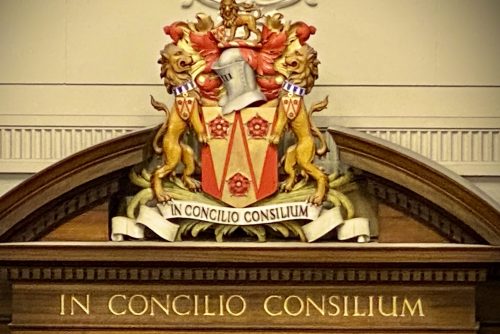Lancashire County Council to consider budget savings and growth initiatives

Lancashire County Council will consider plans next week to achieved budget savings, and plan for future growth.
A savings plan will be considered by the council’s cabinet on Thursday, November 3, that dramatically reduces the projected budget deficit for the coming years.
In September, the cabinet was told that there was an estimated financial gap of more than £87m for the next financial year, and nearly £160m by 2027. This was because of a range of factors out of the council’s control, including rising inflation and energy costs.
The savings and efficiency proposals being put forward would see this reduce to £20m next year, and £41.4m by 2027, which can be managed through reserves and the identification of further savings or income generation in the coming years.
County Cllr Alan Vincent, who is deputy leader and has cabinet responsibility for finance, said: “We know there are significant pressures on the British economy right now and that has a huge knock-on impact for the council’s budget. It’s our duty to safeguard the vital services we provide to our most vulnerable residents and this plan means we can do this.
“We will have to make difficult decisions, but our good financial stewardship means that we are in a strong position to weather this storm.”
The detailed savings proposals will see funding reductions in some longer-term projects, an acceleration of programmes that will generate savings through doing things better, bringing forward schemes that will generate economic growth, and stronger collaboration between the council and other public sector partners.
The council will also be scrutinising its staffing costs, with an assessment of how many vacancies need to be filled, and how the use of expensive agency costs can be reduced. At this stage the council hopes to avoid redundancies.
Cabinet will also consider an ambitious blueprint outlining how Lancashire will unlock its full economic potential.
Despite current growth conditions, the medium-term projection for the Lancashire economy remains exciting, with the county boasting an established pipeline of major development and infrastructure that has the potential to secure more than £20bn of investment over the next decade.
To support the delivery of economic growth and prosperity – one of four headline priorities for the council – a new three-year strategy has been developed.
The strategy, which will run until 2025, sets out how the authority will meet the challenges and maximise opportunities for local economic growth. It presents a simple, high level view of the council’s immediate and medium-term priorities that will support and address activities that add most value in creating the conditions for growth and economic success across the county.
County Cllr Aidy Riggott, cabinet member for economic development and growth, said: “While there will undoubtedly be challenges ahead, the future of Lancashire’s economy looks bright.
“Significant programmes of work that include multibillion-pound developments and infrastructure projects are already in the pipeline, together with a mix of high performing, well established businesses, with long and settled roots in Lancashire.
“We have a unique opportunity over the next three years to capitalise on new industries and new business locations across the county, to secure high value jobs and encourage further investment.”
He added: “The creation of new, quality opportunities will also contribute to our wider ambitions for health, regeneration, making Lancashire somewhere people want to live, work and visit.”
The economic strategy highlights how work will support the local business community by progressing major economic projects and delivery programmes at pace, as well as engaging with businesses to improve the focus and value delivered for Lancashire. Priorities around transport planning, highways and digital infrastructure will also help to achieve these goals.
A skilled talent base will be critical to enabling Lancashire’s economy to flourish, as it will enable business growth and attract inward investment, and County Cllr Jayne Rear, cabinet member for education and skills said: “At the heart of this strategy are the hard working and innovative people of Lancashire.
“We know the importance of education and increased opportunities for adults to reskill and upskill throughout their lives to be able secure good jobs that also meet the needs of our local economy.
“We also need to prepare for our future employment and skills forecasts by increasing demand for higher level skills, with a growing need for digital, tech, cyber and low carbon sectors.”
She added: “By working collaboratively with employers and education and skills providers across Lancashire, we can realise the full potential of Lancashire’s businesses and assets and enable our people to maximise the opportunities on offer in our local labour market.”
Designed to complement work with local government partners and other key stakeholders in the development of the sub-regional strategy ‘Lancashire 2050’, the new economic strategy will be the first of three closely linked strategies to be discussed by cabinet over the coming months. Strategies focusing on how to deliver environmental and transport priorities will follow.
This economic strategy also works alongside the Lancashire Skills and Employment Strategic Framework, which was refreshed in 2021.








